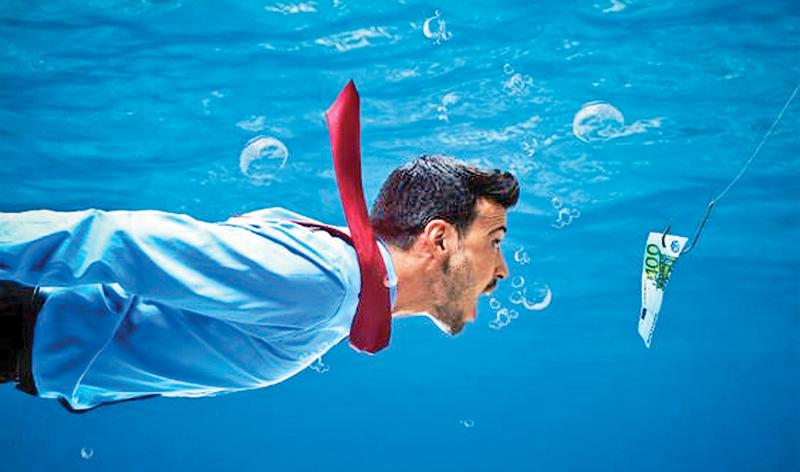
The Corporate Advisory & Capital Markets Department of Merchant Bank of Sri Lanka & Finance PLC (MBSL) will hold a seminar on “CREATING SUSTAINABLE BLUE OCEAN MARKET SPACES” on August 16 to introduce the principles and tools of the strategy. The seminar will be held from 9.00 am to 2.00 pm at the Grand Crystal Ballroom of Hotel Taj Samudra.
Blue Ocean Strategy is the new international benchmark in transformational strategy. It helps organizations break away from the limitations of traditional strategy which is competitor focused and discover competitor free blue oceans. It helps organizations create leaps in value for customers and business, making the competition irrelevant. “Blue Ocean Strategy” emphasizes that leading companies of a new generation will succeed not by battling competitors, but by creating a “Blue Ocean” of uncontested market space, ripe for growth.
Popular examples
A few popular examples of blue ocean strategic moves from a variety of different industries include; Bloomberg became one of the largest and most profitable business information providers in the world. Until Bloomberg’s debut in the early 1980s, Reuters, Dow Jownes and Telerate dominated the online financial information industry, providing news and prices in real time to the brokerage and investment community.
 Bloomberg designed a system specifically to offer traders a leap in value, one with easy-to-use terminals and keyboards labelled with familiar financial terms.
Bloomberg designed a system specifically to offer traders a leap in value, one with easy-to-use terminals and keyboards labelled with familiar financial terms.
By shifting its focus upstream from purchasers to users, Bloomberg created a value curve that was radically different from anything the industry had seen before.
The traders and analysts wielded their power within their firms to force IT managers to purchase Bloomberg terminals.
Blue Ocean Strategy used by Canon mainly eliminated the traditional method used by the desktop copier manufactures and defying the industry logic, the Japanese company Canon created a blue ocean of new market space by shifting the target customer of the copier industry from corporate purchasers to users.
With their small, easy-to-use desktop copiers and printers Canon created new market space by focusing on the key competitive factors.
With the launch of iTunes, Apple unlocked a blue ocean of new market space in digital music that it has now dominated for more than a decade. Apple observed the flood of illegal music file sharing that began in the late 1990s, enabled by file sharing programs such as Napster, Kazaa, and LimeWire.
Today iTunes offers more than 37 million songs as well as movies, TV shows, books and podcasts.
It has now sold more than 25 billion songs, with users downloading on average fifteen thousand songs per minute. iTunes is estimated to account for more than 60 percent of the global digital music download market.
Objectives of seminar
While Apple has dominated this blue ocean for more than a decade, as other online stores zoom in on the this market, the challenge for Apple will be to keep its sights on the evolving mass market and not to fall into competitive benchmarking or high end niche marketing. Learning Objectives of this seminar are: Understanding the concept of value innovation, the cornerstone of Blue Ocean Strategy which allows to identify strategic options that dramatically raise customer utility while achieving lower cost for the company
* How to “Wake up” your organization to the need for pursuing new sustainable profit growth
* Providing insights into how to unlock the possibility of creating new markets and understand Strategic Corporate Sustainability
* The following case studies will be used to demonstrate Sustainable new market spaces Tesla, Apple, Airbnb
Key speaker at seminar
Dr Ravi Fernando is a veteran on this subject and holds a Doctor in Business Administration from the European University in Geneva and Master of Studies from the University of Cambridge. He is an Executive in Residence at INSEAD Social Innovation Centre since September 2010. He is also member of the visiting faculty of the Deusto Business School (Bilbao) University of Pompeu Fabra (Barcelona), Spain and University of Colombo MBA programme teaching “Strategic Corporate Sustainability”.
He published “Strategic Corporate Sustainability – 7 Imperatives for Sustainable Business” (Partridge Penguin Random House), based on his work at Cambridge University. Dr Fernando will introduce enterprise development and growth, “Red Ocean” vs “Blue Ocean” as well as principles and tools of “Blue Ocean Strategy” with examples. Several local entrepreneurs will also share their experiences and talk about the effectiveness in adoption of the strategy.
